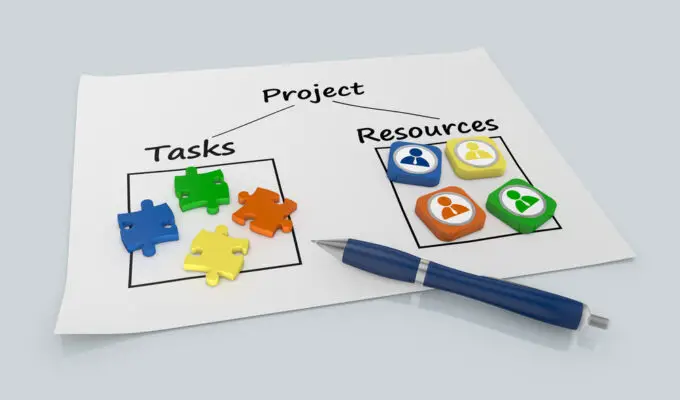The number of hours a project manager works can vary greatly depending on the industry, the specific project they’re working on, and the company they work for. However, it’s not uncommon for project managers to work more than the standard 40-hour work week.
Project managers often need to be available to handle issues that arise, meet with stakeholders, and ensure that the project is moving forward as planned. This can sometimes mean working evenings or weekends, especially as project deadlines approach.
On average, it’s safe to say that many project managers work between 40-50 hours per week, but it can be more during busy periods or less during slower times. It’s also worth noting that project management often requires a degree of flexibility, as the nature of the work can change rapidly and unpredictably.
The job requires effective leadership, communication, and coordination with team members to ensure timely completion of tasks. However, project managers often face long work hours and tight deadlines, making it difficult to achieve a healthy work-life balance.
While project managers’ work hours vary depending on the industry, company size, and project complexity, it is essential to understand how much time they typically invest in each stage of the project lifecycle.
In this article, we will explore the factors that affect project managers‘ work hours during different project stages and provide insights into how they manage their workload while maintaining a healthy lifestyle.

Factors that Affect Project Manager Work Hours
The work hours of project managers are influenced by various factors that include but are not limited to project complexity, resource availability, stakeholder expectations, and deadlines. One primary factor affecting project manager work hours is workload management. Others include:-
Project Complexity: The more complex a project is, the more time a project manager will likely need to spend on it. Complex projects often involve more stakeholders, tasks, and the potential for things to go wrong, which can require additional time.
Project Timeline: Projects with tight deadlines often require more hours in a week than those with more flexible timelines. This is especially true in the days or weeks leading up to a major deadline.
Team Size and Composition: Managing a large team or a team composed of individuals with diverse skills and backgrounds can require more time. This is because it often involves more communication, conflict resolution, and time spent coordinating tasks.
Stakeholder Expectations: A project manager may need more time communicating and reporting if stakeholders have high expectations or require frequent updates.
Industry: Some industries are known for longer work hours. For example, project managers in the tech or construction industries may work longer hours than those in other industries.
Company Culture: Some companies have a culture of long work hours, while others prioritize work-life balance. This can greatly affect the hours a project manager is expected to work.
Project Phase: Different project phases can require different amounts of time. For example, a project’s planning and closing phases often require more intensive work, while the execution phase might require less direct involvement.
Unexpected Issues: Projects rarely go exactly as planned. When unexpected issues arise, project managers often need extra hours to resolve them and keep the project on track.
The role of a project manager demands effective time management skills to ensure that all tasks are completed within the given timeframe.
Project managers must prioritize tasks based on their importance and urgency, delegate responsibilities where necessary and coordinate with team members to ensure smooth progress.
Another factor that influences project manager work hours is team communication. Effective communication is essential for successful project completion as it ensures that everyone involved is aware of tasks assigned to them, deadlines, and any changes made during the project.
Project managers must communicate regularly with all stakeholders involved in the project to gather feedback on progress and address any concerns promptly.
To successfully manage projects effectively, a project manager must be highly organized and detail-oriented while possessing excellent communication skills.
Typical Work Hours during the Planning and Initiation Stage
During a project’s planning and initiation stage, it is typical for project managers to work regular business hours. This stage involves gathering information about the project, identifying its objectives and scope, defining deliverables, developing timelines and milestones, and determining resource needs.
As such, workload management becomes an important factor in ensuring that project managers can accomplish these tasks within time constraints.
Project managers must prioritize tasks based on their importance and urgency to manage their workload effectively during this stage. They should also communicate with team members to ensure everyone understands their roles and responsibilities.
Additionally, they may need to delegate tasks to others on the team with the necessary skills and expertise.
Time constraints are another significant factor that affects work hours during this stage. Project managers must ensure all activities are completed within set deadlines while maintaining quality standards.
They may also need to adjust schedules as unforeseen issues arise or new priorities emerge. Effective communication with stakeholders is vital in managing expectations about timelines and potential delays.
Managing workload efficiently through prioritization and delegation is key for project managers during a project’s planning and initiation stage while working regular business hours despite time constraints affecting work hours at this stage.
Good communication skills are also essential in ensuring effective collaboration among team members while meeting deadlines without compromising quality standards or causing undue stress on themselves or others involved in the project.
Typical Work Hours during the Execution and Monitoring Stage
Efficient management of resources is crucial for the successful completion of a project’s execution and monitoring stage. Project managers must ensure that they utilize their time effectively and maximize productivity during this phase.
One important productivity tip is to set clear goals and priorities for the team, which can help them stay focused on tasks and avoid wasting time on low-priority activities.
In addition, managing remote teams can be challenging during the execution and monitoring stage. With team members working from different locations, it becomes essential for project managers to ensure effective communication between them.
Video conferencing tools, instant messaging platforms, and file-sharing systems can be used to facilitate collaboration among team members.
To maintain high productivity levels during the execution and monitoring stage, project managers should also track progress regularly. This involves analyzing key performance indicators (KPIs), such as budget utilization, timeline adherence, quality metrics, etc., to identify improvements.
Balancing Work Hours with Work-Life Balance
Achieving a balance between work hours and personal life is crucial for project managers during the execution and monitoring stage, as it helps prevent burnout and maintain overall well-being.
Managing stress is an important aspect of self-care that can help project managers achieve this balance.
Project managers should prioritize taking breaks throughout the day to recharge their batteries and engage in stress-reducing activities such as exercise, meditation, or spending time with loved ones.
Another way to achieve work-life balance is by setting boundaries and delegating tasks. Project managers should identify the most essential tasks that require their direct attention and delegate less critical tasks to team members with the appropriate skills.
Additionally, creating clear boundaries around when they are available for work-related communication can help project managers disconnect from work when off-duty.
In conclusion, managing stress, prioritizing self-care, setting boundaries, and delegating tasks are all key strategies that project managers can use to achieve a healthy balance between work hours and personal life during the execution and monitoring stage of a project.
Maintaining a healthy equilibrium between professional responsibilities and personal lives will lead to happier individuals in and out of the workplace.
Conclusion and Final Thoughts
The importance of work-life balance in project management cannot be overstated, as it ensures individuals’ overall well-being and productivity both in and out of the workplace.
In today’s world, where remote work challenges are becoming more common, finding flexible work arrangements that allow project managers to balance their personal and professional lives effectively is essential.
Flexible scheduling is one-way project managers can achieve a healthy work-life balance.
Additionally, remote work has become increasingly popular in recent years due to its flexibility, allowing project managers to choose when and where they want to work.
However, achieving a good work-life balance can sometimes be challenging, even with flexible arrangements or remote working options. Project managers must learn how to set limits on their working hours and create boundaries between their personal life and professional responsibilities.
It is also important for organizations to promote a culture that values the well-being of employees so that they feel supported in managing their workload effectively while maintaining a healthy lifestyle.

Frequently Asked Questions
What is the average salary for project managers?
The average salary range for project managers varies significantly depending on experience requirements. According to the Bureau of Labor Statistics, the median annual wage for project managers was $74,200 in 2019.
How does the size of a project impact a project manager’s work hours?
The size of a project and the complexity of tasks impact a project manager’s workload. Larger teams require more coordination, communication, and supervision, while complex projects demand greater attention to detail and problem-solving abilities.
What are some common challenges faced by project managers regarding work hours?
Project managers face several challenges related to their work hours, including the need for workplace flexibility and practical time management skills. These professionals must balance competing demands while ensuring projects are completed on time and within budget, often requiring long hours and careful planning.
How do project managers prioritize their workload to maintain a healthy work-life balance?
Project managers prioritize their workload by implementing time management strategies and delegating tasks to team members. This allows them to balance their work responsibilities with their personal life, leading to a healthier work-life balance.
Are there any industry-specific trends or expectations regarding project manager work hours?
Industry-specific trends indicate increasing flexibility in project manager work schedules, including remote work options. While overall work hours may vary, employers prioritize productivity and result over strict time constraints, allowing for greater autonomy in achieving goals.

Conclusion
Project managers are essential to the success of any project. They are crucial in ensuring the project is carried out smoothly, within budget, and on time. However, with great responsibility comes long hours of work.
The number of hours a project manager works varies depending on several factors, such as the project stage, complexity, team size, and location.
Project managers typically work regular office hours during the planning and initiation stage. This allows them to focus on defining goals and objectives, creating timelines and budgets, identifying risks, and developing mitigation strategies.
In contrast, during the execution and monitoring stage, where they oversee tasks completed by their teams, they may need extra hours to ensure everything runs smoothly.
It is important for project managers to balance their work hours with their personal life so as not to burn out or suffer from health issues due to overwork. They can delegate some responsibilities when necessary or take breaks between intense work periods to achieve this balance.
Project management requires dedication and hard work, but finding a healthy balance leads to better performance outcomes for individuals and organizations involved in projects.

Chris Ekai is a Risk Management expert with over 10 years of experience in the field. He has a Master’s(MSc) degree in Risk Management from University of Portsmouth and is a CPA and Finance professional. He currently works as a Content Manager at Risk Publishing, writing about Enterprise Risk Management, Business Continuity Management and Project Management.

